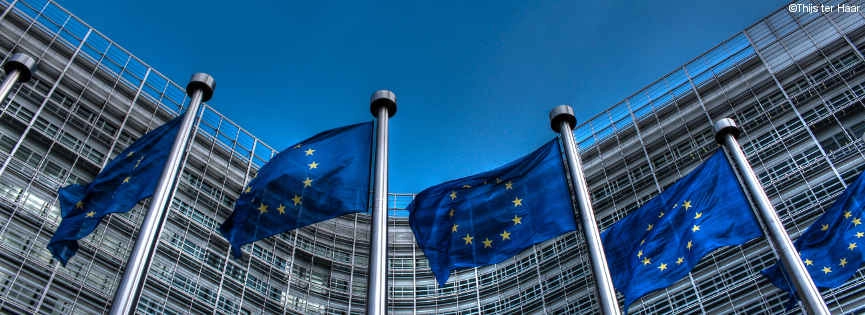Main content
European Union 2017 Princess of Asturias Award for Concord

“Europe will not be made all at once, or according to a single plan. It will be built through concrete achievements which first create a de facto solidarity.” These words by Robert Schuman in his statement of 9th May 1950 give a glimpse of the dream of a united Europe after one of the bloodiest periods in contemporary history. Sixty years after the signing of the Treaty of Rome, the EU represents a unique model of supranational political integration based on the peaceful, progressive and free association of its members. The sum of various elements such as the common market (free movement of persons, goods, workers and capital), the single currency, regional, agricultural and trade policies, among others, and guarantees of stability, prosperity and respect for human rights evidence this fact. During these six decades, Franco-German reconciliation and the enlargement of the borders of the EU towards the east of Europe have been achieved, among other milestones.
The signing of the Treaty of Paris in 1951 created the European Coal and Steel Community (ECSC): a supranational entity promoted by Robert Schuman and Jean Monnet, Minister of Foreign Affairs and Commissar General of Modernization and Equipment of the French Government, respectively, at the time. Conceived on the idea that, with increasing economic interdependence between countries, the potential for conflict would be reduced, the ECSC regulated the coal and steel industries in France and Germany and was open to other Member States. It was the direct antecedent of the ‘Europe of the Six’: France, West Germany, Italy, Belgium, Luxembourg and the Netherlands. The European Economic Community (EEC), to which Spain acceded in 1986, was subsequently created, as well as the European Atomic Energy Community (EAEC), whose establishment was agreed in 1957 by the Treaty of Rome. In 1993, the EEC became the European Union (EU). Since 2009, the EU has been governed by what is known as the Treaty of Lisbon, which replaces the failed attempt to create a European constitution at the beginning of the 21st century.
In recent times, the EU has fostered a more inclusive and constructive relationship with neighbours such as Turkey, the Middle East and North Africa. Currently, 28 Member States and more than 500 million people are beneficiaries of a European integration based on the rule of law which has proved to be a peace project in itself. However, the EU not only revolves around peace between nations, but also constitutes a community of values based on freedom and justice. In this regard, the EU must continue to face new challenges such as the definitive end to the economic and social crisis the continent has been enduring for several years now and the recent announcement by the United Kingdom (UK) of its withdrawal from the EU, a circumstance which puts a constantly evolving EU to the test.
Since the entry into force of the Lisbon Treaty in 2009, the EU Charter of Fundamental Rights has brought together in a single document all the rights contained in previous European treaties, while the European Parliament has supported human rights through the Sakharov Prize for Freedom of Thought since 1998. In 2012, the EU received the Nobel Peace Prize for its contribution to the advancement of peace, reconciliation, democracy and human rights in Europe.
End of main content
